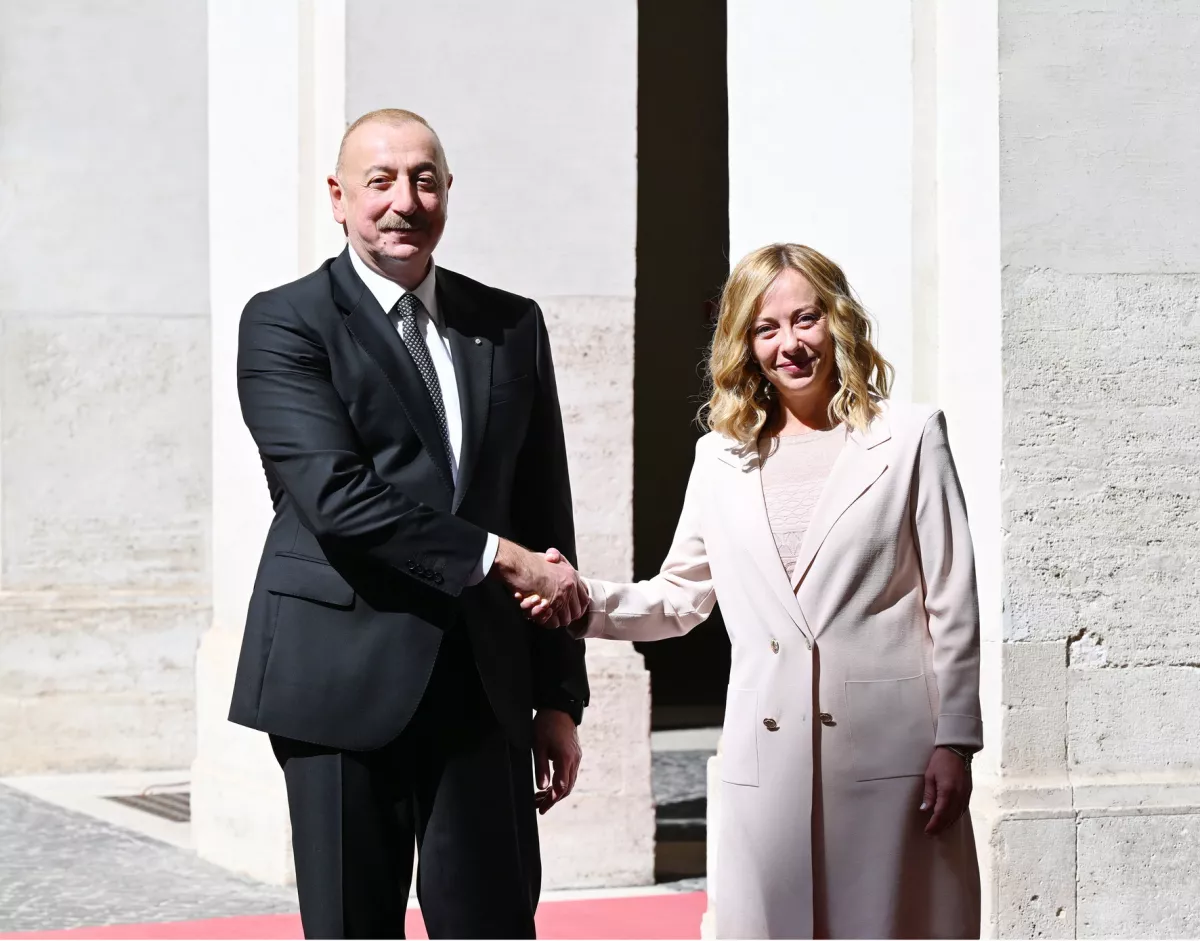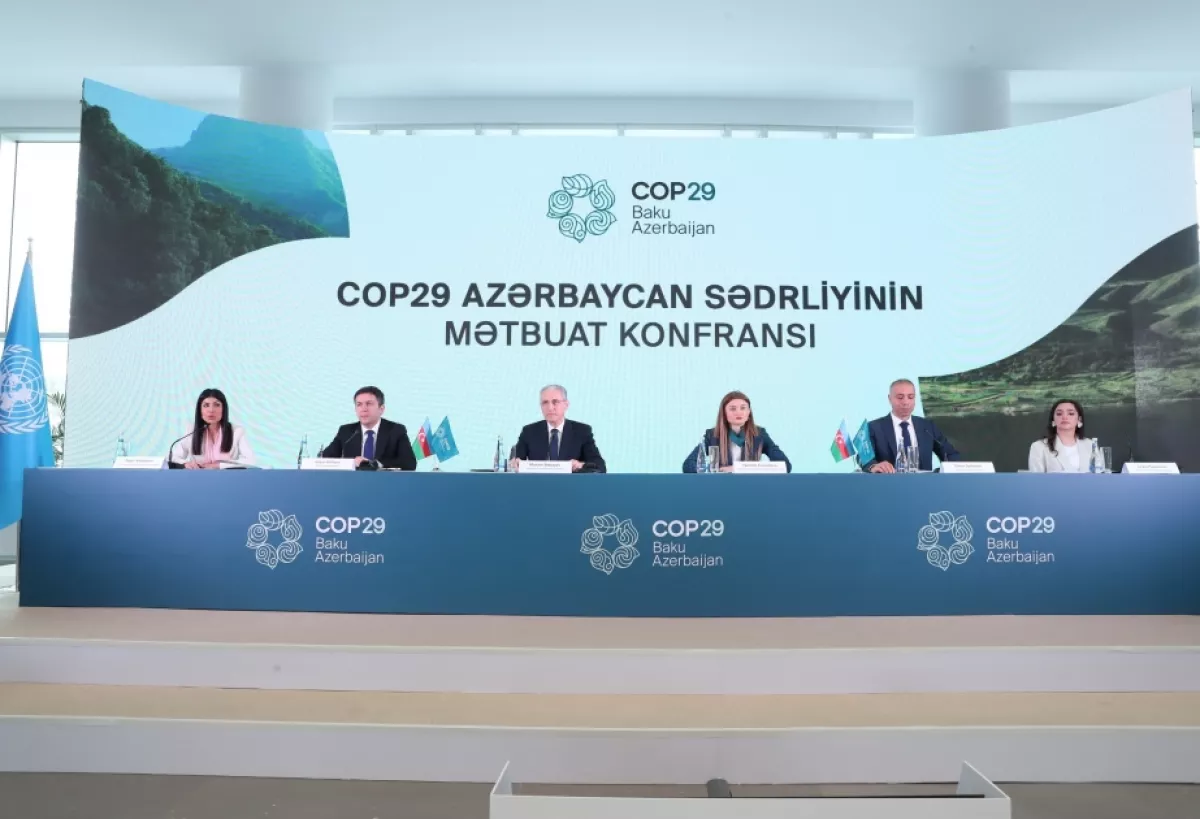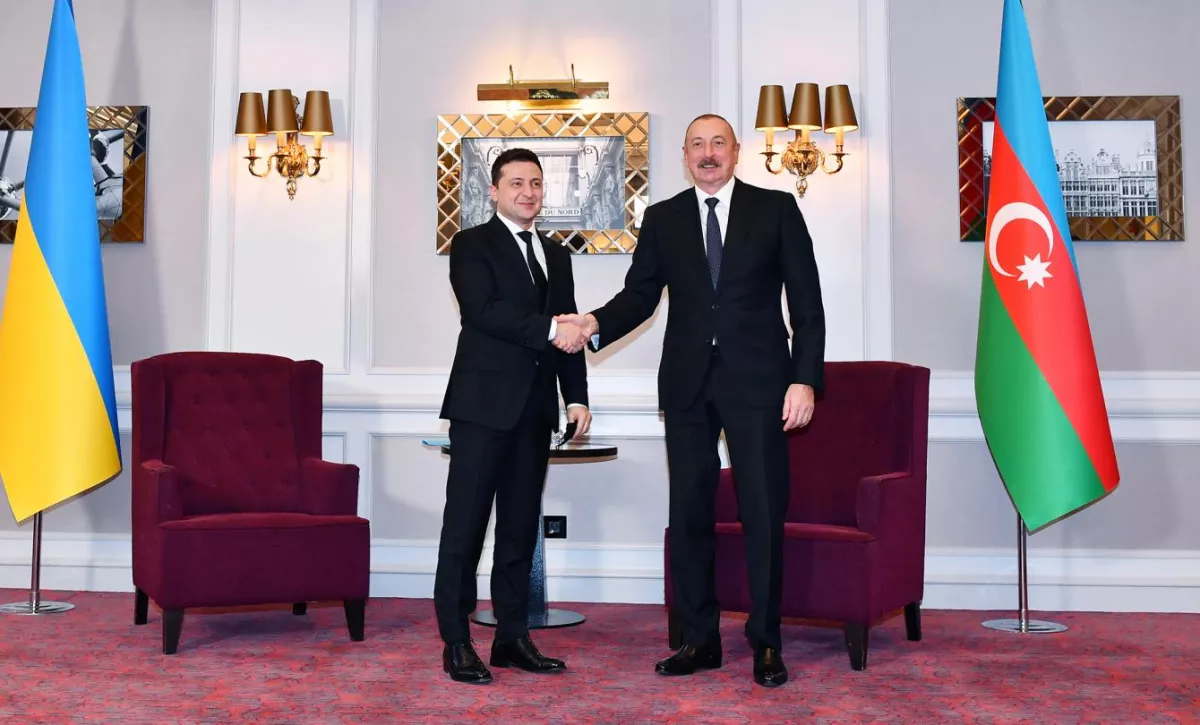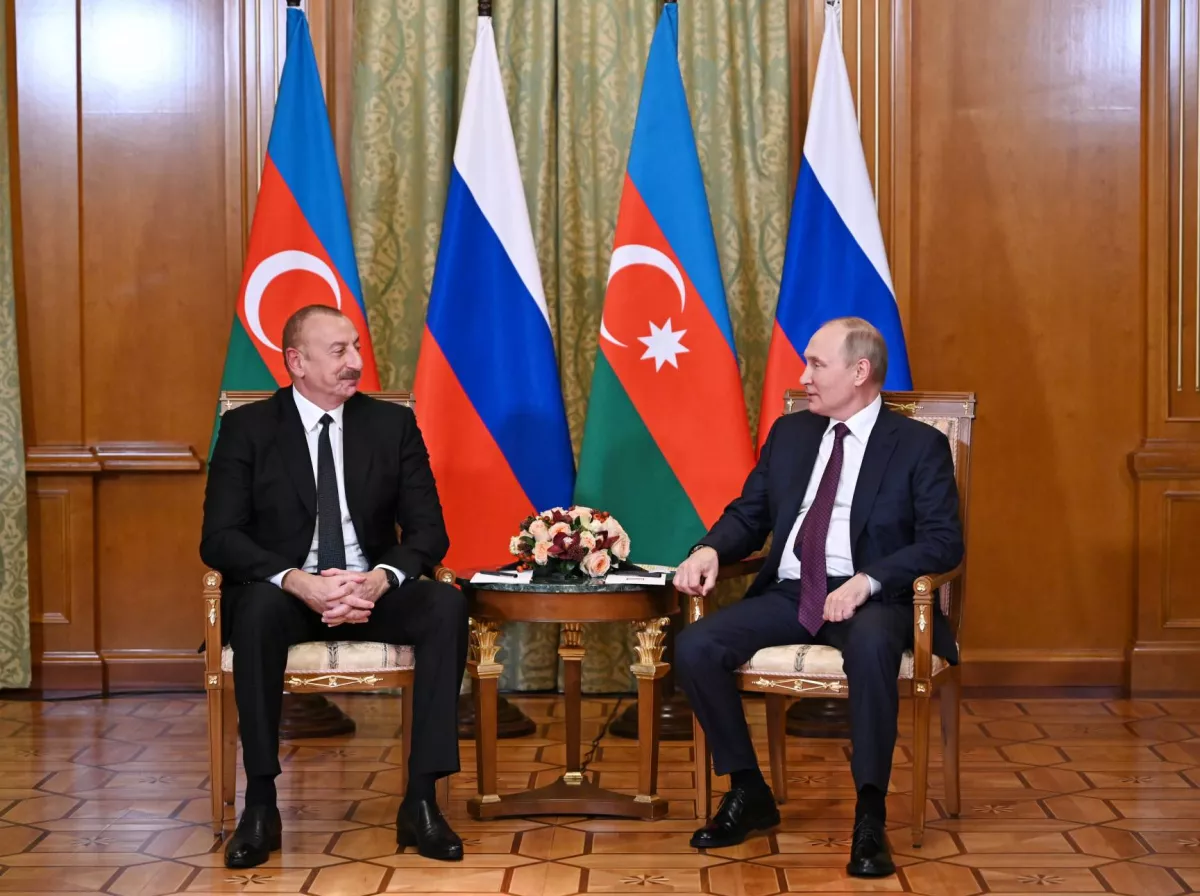Azerbaijani president at Cernobbio forum on geopolitics, energy, regional peace Mulling evolving role of nation in global affairs
At the International Cernobbio Forum, President Ilham Aliyev addressed the audience on Azerbaijan’s growing role in the new geopolitical landscape. The session, titled "Azerbaijan's role in the new geopolitical environment," covered a wide range of topics, including Azerbaijan's strategic partnership with Italy, energy security, regional peace, and the ongoing negotiations between Azerbaijan and Armenia. Below is a Q&A format of President Aliyev's key remarks, offering insights into his vision for Azerbaijan’s future role in the world.
Q: What was the significance of President Ilham Aliyev's visit to Italy and his participation in the Cernobbio Forum?
A: President Ilham Aliyev emphasized the importance of Azerbaijan's bilateral relations with Italy during his visit and participation in the Cernobbio Forum. This was his third visit to Italy since 2020, reaffirming the strategic partnership between the two nations. Azerbaijan and Italy have been close partners for many years, with a strategic cooperation agreement that dates back nearly ten years. This partnership spans various sectors, including energy and trade, with Italy being Azerbaijan’s top trading partner. The volume of trade between the two countries reached nearly $16 billion last year.

Furthermore, Azerbaijan is Italy’s primary oil supplier and second-largest gas supplier, highlighting the significance of energy cooperation. The president’s participation in the forum also reinforced these ties and provided an opportunity to discuss Azerbaijan's role in the evolving geopolitical landscape.
Q: How does Azerbaijan contribute to Europe's energy security, and what role does the Southern Gas Corridor play in this?
A: Azerbaijan plays a crucial role in ensuring Europe's energy security, primarily through the Southern Gas Corridor, a 3,500-kilometer integrated pipeline system that transports natural gas from Azerbaijan to Italy. This corridor serves as a vital link between the two regions, ensuring gas supplies to 10 countries, including seven EU member states.
Azerbaijan has become a key player in Europe's energy diversification strategy, with the European Commission recognizing the country as a reliable and pan-European gas supplier. The Southern Gas Corridor not only ensures energy security for these nations but also has the potential for further expansion. Currently, Azerbaijan is in discussions with at least three European countries to expand gas supplies, demonstrating its growing influence in the energy sector.

Q: How does Azerbaijan view the connection between national security and energy security?
A: President Ilham Aliyev underscored the inseparable connection between national security and energy security. The events of recent years have highlighted the importance of reliable energy supplies for ensuring the stability and security of nations. For Azerbaijan, energy security has become a fundamental aspect of its national security policy.
The Southern Gas Corridor, which supplies natural gas to European countries, is a testament to this. Through this project, Azerbaijan is not only contributing to the energy security of its partner countries but also reinforcing its own strategic position on the global stage. The ability to provide uninterrupted energy supplies strengthens Azerbaijan's influence and fosters deeper geopolitical cooperation.
Q: What impact has the restoration of Azerbaijan's territorial integrity had on the geopolitical landscape?
A: The restoration of Azerbaijan’s territorial integrity in 2020, following the 44-day Patriotic War, was a significant geopolitical shift in the Caucasus region. For 30 years, Azerbaijan’s internationally recognized territories were under Armenian occupation, despite numerous UNSC resolutions demanding Armenia's withdrawal.
The failure of international law alone to resolve the conflict pushed Azerbaijan to take decisive action. President Aliyev highlighted that the liberation of Azerbaijani territories demonstrated the importance of a strong political will and the ability to consolidate the nation’s strength. This victory not only restored Azerbaijan's sovereignty but also set a precedent for other countries striving for territorial integrity. The resolution of this conflict has paved the way for peace negotiations between Azerbaijan and Armenia, with 80% of the peace treaty already agreed upon.

Q: How does Azerbaijan's experience with territorial restoration provide lessons for other nations?
A: Azerbaijan’s experience in restoring its territorial integrity serves as a valuable example for other nations facing similar challenges. President Aliyev noted that the country’s success was achieved through a combination of adherence to international law, strong political will, and the mobilization of national strength. While international organizations failed to enforce their resolutions regarding Armenian withdrawal, Azerbaijan took the necessary steps to restore its sovereignty independently.
This achievement has reshaped the geopolitical dynamics of the Southern Caucasus, creating new opportunities for peace and cooperation. Countries struggling to regain control over their territories can draw inspiration from Azerbaijan’s experience, where determination and national unity played a pivotal role in securing a just outcome.
Q: What role is Azerbaijan playing in facilitating peace and stability in the Southern Caucasus?
A: Azerbaijan is actively contributing to peace and stability in the Southern Caucasus through ongoing negotiations with Armenia. The conflict that lasted for three decades has now reached a stage where both countries are making progress towards a peace treaty. Azerbaijan’s initiative to engage in dialogue has led to the approval of 80% of the peace treaty’s provisions.
Additionally, the process of border delimitation and demarcation has begun, albeit in its early stages. President Aliyev emphasized that achieving peace in the Southern Caucasus would not only benefit the region but also serve as an example for the broader international community. The successful conclusion of peace talks between Azerbaijan and Armenia could demonstrate how longstanding conflicts can be resolved through diplomacy and constructive engagement.
Q: What is the significance of Azerbaijan hosting the COP29 climate conference?

A: Azerbaijan’s hosting of the COP29 climate conference in two months is a significant achievement for the country and the region. This will be the first time in history that such a major international climate event is held in the South Caucasus. The decision to host COP29 in Azerbaijan was made by consensus among nearly 200 countries, which President Aliyev views as a sign of respect for Azerbaijan's growing role on the global stage.
The conference will offer an opportunity for Azerbaijan to build bridges between the Global South and the Global North on climate issues. While Azerbaijan is not a major actor in global climate policy, the country is committed to fostering dialogue and cooperation on critical environmental challenges, helping to bridge the divides between different regions of the world.
Q: What is Azerbaijan’s stance on the conflict between Russia and Ukraine, and how might it contribute to its resolution?

A: Azerbaijan maintains a balanced stance on the conflict between Russia and Ukraine, supporting the territorial integrity and sovereignty of both nations. President Aliyev reiterated that while Azerbaijan strongly backs Ukraine’s sovereignty, it has not participated in the anti-Russian sanctions campaign. This pragmatic approach has enabled Azerbaijan to maintain good relations with both countries. In terms of its potential role in resolving the conflict, Azerbaijan has already facilitated negotiations on gas transit between Russia and Ukraine to ensure continued gas supplies to Europe.
President Aliyev expressed optimism about Azerbaijan’s ability to help mediate discussions and possibly play a role in future efforts to end the war. Azerbaijan’s historical connections with both Russia and Ukraine, dating back to their shared past in the Soviet Union, position it as a potential facilitator in this context.

Q: How does President Aliyev respond to criticisms regarding Azerbaijan's recent diplomatic decisions, particularly with the Parliamentary Assembly of the Council of Europe (PACE)?
A: President Aliyev addressed criticisms surrounding Azerbaijan’s decision to declare several members of the Parliamentary Assembly of the Council of Europe (PACE) persona non grata, including five Italian MPs. He explained that this decision was a response to PACE’s sanctions against Azerbaijan, which deprived the country’s delegation of its voting rights.
These sanctions were imposed following Azerbaijan’s restoration of its sovereignty, which President Aliyev believes was unjustified, as Azerbaijan acted within its own territory and in line with international law.
He emphasized that Azerbaijan's decision was a direct reaction to PACE’s actions, but there is an opportunity to reverse the situation. If PACE restores Azerbaijan's voting rights in January, the ban will be lifted, and relations can be normalized.








